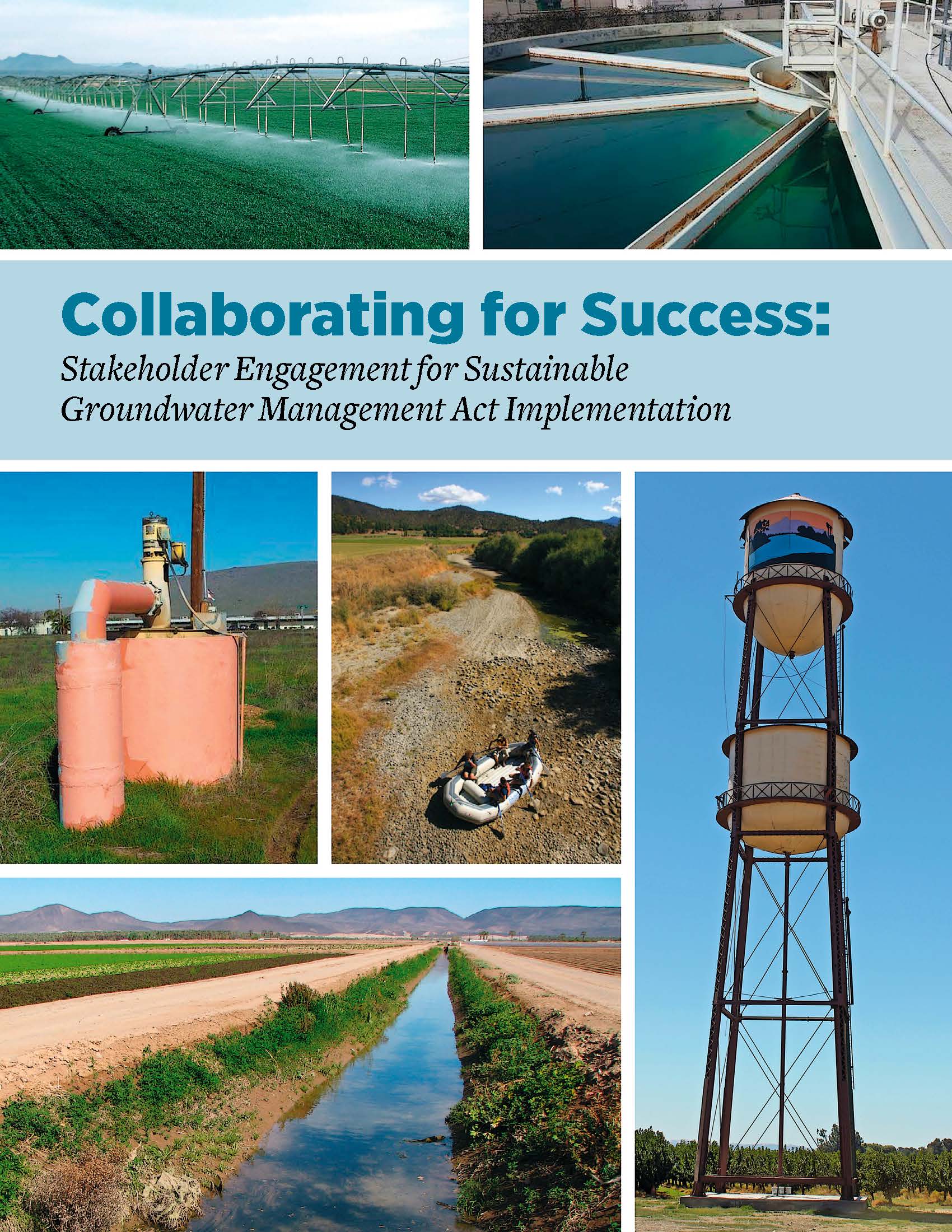In August 2014, the California Legislature passed the Sustainable Groundwater Management Act (SGMA), marking a fundamental shift in the management of water resources in California. For the first time, groundwater in the state will have to be managed to protect the long-term reliability of the resource. SGMA is thus an important step forward, but achieving the objective of sustainability will ultimately depend on the commitment and participation of a large number of actors throughout its implementation.
Research on sustainable management of shared resources such as groundwater underscores the critical role of stakeholder engagement. While stakeholder engagement requires time and resources in the short term, the benefits of improved outcomes, optimized resources, and broad support and reduced conflict can make these efforts invaluable in the long term. As such, SGMA establishes stakeholder engagement and collaboration as key to achieving the objectives of the law. The local agencies charged with implementing the law have, however, been given little guidance about how to best implement these tools. Although some of the statutory requirements for stakeholder engagement are quite specific, many are not. SGMA’s statutory requirements for public notice and participation through public hearings and interested parties lists are fairly straightforward. On the other hand, requirements to “consider the interests of all beneficial uses and users of groundwater” and to “encourage the active involvement of diverse social, cultural, and economic elements of the population” leave many more questions than answers as to what this means or how this can be accomplished.
The results of stakeholder engagement strongly depend on the nature of the engagement process. Therefore, the manner in which SGMA’s engagement and participation requirements are incorporated into the process will ultimately determine the degree to which these efforts further the goal of achieving sustainable groundwater management. For local agencies and, later, Groundwater Sustainability Agencies to maximize the impact of stakeholder engagement, engagement needs to be institutionalized so that stakeholder contributions tangibly shape outcomes. Additionally, the level of and mechanisms for engagement need to be suited to the needs, desires, and interests of the stakeholders.
The intent of this paper is to convey the value of stakeholder engagement to sustainable groundwater management and to provide tools that will help maximize its benefits. Section One considers the question, what is stakeholder engagement and why is it important? Section Two then outlines the statutory requirements for stakeholder engagement in SGMA. Finally, Section Three, drawing on best practices and examples of collaborative management from around the state, provides a recommended roadmap for effective stakeholder engagement drawn specifically for SGMA implementation.
Collaborating for Success: Stakeholder Engagement for Sustainable Groundwater Management Act Implementation
